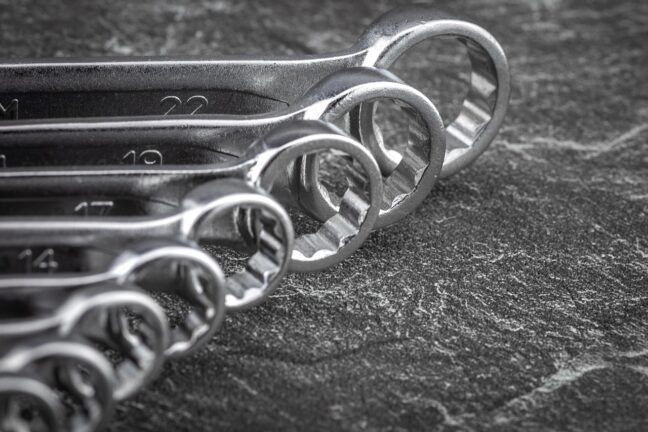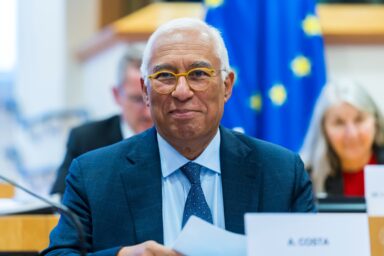Europe signals that control over strategic materials matters as much as price. The European Commission has opened an in-depth probe into China-owned MMG’s proposed takeover of Anglo American’s nickel operation, a leading market player.
The European Commission has put a large yellow flag on MMG’s proposed purchase of Anglo American’s Brazilian nickel arm. Brussels worries that the €470m deal would grant a Chinese-controlled group the means—alongside a potentially existing geopolitical motive—to funnel a critical metal away from Europe. In early November, Brussels opened a Phase-II probe, the equivalent of ordering a full strip-search rather than a cursory pat-down. They now have until March 20th to decide whether to wave the transaction through, demand tough concessions or block it outright.
The assets at stake sit in the red-soil hills of Goiás, Brazil. Barro Alto, Codemin and two yet-to-be-dug projects together churn out ferronickel, a molten mix of iron and nickel that is cast into nuggets and shipped across the Atlantic. MMG, headquartered in Melbourne but majority-owned by China Minmetals, covets those nuggets as Beijing readies an industrial push that will drink nickel by the tanker-load.
China already dominates many battery metals. A foothold in ferronickel, vital for traditional stainless steel, would extend that reach into Europe’s kitchens and car plants. The Commission fears a repeat of the lithium and rare-earth sagas, in which supply has followed Beijing’s political winds rather than market logic.
You might be interested
Nickel vs. nerves
Ferronickel does a simple job: it dopes steel with nickel, giving pots, pipes and turbines the strength to shrug off rust. Europe produces stainless steel, but it mines precious little nickel. Imports feed its mills, and the Brazilian mines in question are among the few sources of low-carbon ferronickel that meet Europe’s green standards.
Officials in Brussels reckon the market is tight. Their preliminary dossier says Anglo American’s unit “holds substantial market power” and that European buyers “have limited access to alternative supply”. Hand those knobs and dials to MMG, they argue, and China could twist them at leisure.
Our investigation aims to verify whether this concentration could jeopardise continued and reliable access in Europe to this important resource. — Teresa Ribera, European Commission Vice-President
“Ferronickel is a key input for European producers to manufacture high-quality, low-emission stainless steel at competitive prices, which is critical for many sectors,” said Teresa Ribera, the Commission vice-president in charge of competition and green policy.
Steel in its spine
“Our investigation aims to verify whether this concentration could jeopardise continued and reliable access in Europe to this important resource,” Ms Ribera added. She has a history of willingness to lean hard on foreign deals she thinks may threaten the EU’s economic security: in 2021, she forced extra conditions on COSCO’s purchase of a Greek port, and in 2024 she vetoed a Korean chip merger. Those earlier interventions frame the Vice-President’s current scepticism over MMG’s bid. Firms know she has taken tough decisions before and might do so again.
Stainless-steel makers are certainly worried. If MMG routed Brazilian output to Chinese allies—or simply tightened the spigot—European mills would pay more, lose quality or both. In a global market where cents per kilo decide contracts, that could bleed jobs.
MMG sought to calm nerves with what Brussels calls “behavioural commitments”. It promised that Anglo would keep buying the same volume of ferronickel for up to ten years. The pledge involved no asset sales, no price caps and no independent monitor. Unsurprisingly, officials looked askance and opted not to market-test the offer.
Behavioural band-aids
Competition lawyers know the Commission dislikes soft promises. It prefers structural fixes—selling a mine, carving out a plant—or at least hard-wired contracts. Stakeholders piled in, voicing concerns. An American trade group urged the White House to keep an eye on Europe’s case, warning of “China’s growing grip on global nickel”. The in-depth probe was to be expected.
“We’ll be working diligently with the EC team to progress the approval process and comprehensively address any outstanding questions,” the two firms said in a joint statement. They insist the deal “will not raise competition issues” and hope the timetable stays on track.
The geopolitical undertone is impossible to miss. MMG’s ultimate boss, China Minmetals, answers to China’s State Council. European strategists fret that Beijing could weaponise metals as it has done with solar panels or gallium. Nickel may not power headlines like chips, yet it is still a potential choke-point.
We’ll be working diligently with the EC team to progress the approval process and comprehensively address any outstanding questions. — joint statement by Anglo American, MMG
Procedure now takes centre stage. Phase II adds 90 working days, though the clock can pause if firms dump fresh data on regulators. By spring MMG must offer remedies with real bite—perhaps long-term supply contracts underpinned by third-party audits, or even the divestment of one mine. Failing that, Brussels can veto the deal.
More than an alloy
The Commission rarely swings the axe: most mergers clear with tweaks. But it has been hardening its line where Chinese state influence looms. Two other complex probes, Mars–Kellanova and Universal–Downtown, sit in the same queue, yet neither packs the same geopolitical charge.
If MMG clinches approval, China will tighten another loop in its metals chain, and European buyers will pay hawk-eyed attention to every shipment from Goiás. Should Brussels block the takeover, Anglo must seek another suitor or keep the mines. Either way, Europe signals that control over strategic minerals matters as much as price.
The investigation also sets a precedent. Expect any future Chinese bid for European-bound raw materials to face similar x-rays. In an era of industrial policy and supply-chain angst, ferronickel has become more than a dull alloy. It is a test of how far Europe will go to shield its economic sinews from China’s grasp.











